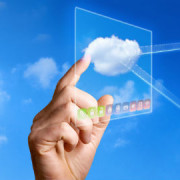How Cloud Computing Can Help Your Hotel Save Money
When you’re working in the hospitality industry, you’re often focused on your guests. You probably already know – their happiness can determine whether or not your hotel fails or succeeds.
Your potential guests may be considering your hotel, but what if they’re unsure of whether or not your hotel meets their needs?
Good news: with cloud computing, you can not only better meet your guests’ needs – you can SAVE money at the same time!
Here’s how:
Decreased electricity costs
Without cloud computing, you’re stuck with a data center that includes servers. Those servers require maintenance and care – and that can REALLY run up your electricity bill. When you transition to the cloud, your data is stored offsite, so you can cut your energy use in a major way! That means, your electricity bill will be lowered considerably.
Avoiding capital costs
With the cloud, you avoid any upfront fees for equipment and staffing to implement your technology. You can also take advantage of the latest technology to make sure your guests are happy and served efficiently.
Reduction of downtime
If you move to cloud-based IT support, you gain engineers that are available to help you around the clock. No more waiting until the next day to resolve an issue (which can be frustrating for both you and your guests!). You can feel confident knowing that your IT problems can be resolved quickly and at any time and knowing that reduced downtime is helping you save money.
Overall, if you’re looking to save money at your hotel, cloud computing is a no-brainer!
Here at LIMOTTA IT, our cloud computing solution is called Hospitality Cloud Plus. Not only does it offer you all of the above benefits – it also helps you drastically improve the guest experience, expand your property’s bookings, and reach your goals more quickly.
We want to get to know YOU, discover your hotel’s specific needs, and provide you with the best cloud solution possible. We’re experts in hospitality infrastructures, so you can rest assured that we’re equipped to make it happen.
So, let’s talk! Contact LIMOTTA IT today, and let’s work together to improve the guest experience at your hotel using technology.



